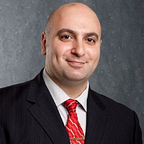With Space Fireworks, HealthTech Takes Off in 2019
On January 17, Japanese ‘space entertainment’ firm ALE launched the first on-demand ‘artificial shooting stars’ (live demo due late March). ALE plans to sell its ‘space fireworks’ to music festivals, theme parks and cities holding special events.
That said, it’s really HealthTech that’s set to take off (no pun) in 2019.
Cutting-edge HealthTech featured prominently at the recent Consumer Electronics Show in Las Vegas, where the TytoHome handheld kit and app were demoed. The TytoHome kit allows pretty much anyone, anywhere to perform an on-demand medical exam while a doctor guides them through the app.
Hot on the heels of the Apple Watch 4, Withings launched its Move ECG watch, the first analogue watch that can record a medical-grade ECG. The firm’s also betting big on digital health ecosystems, announcing its BPM Core device which includes a smart blood pressure monitor, heart rate sensor, ECG and digital stethoscope.
Withings claims the BPM Core will be able to detect several heart conditions with medical-grade accuracy (this is pending FDA approval), including among others: atrial fibrillation, aortic stenosis, mitral regurgitation, and aortic regurgitation.
Basically, an on-demand heart health screening device for around US$250!
RehabTech also featured at CES, including Flint Rehab’s MiGo, wrist-wearable and companion app designed to help stroke survivors exercise impaired limbs.
In more stroke-related HealthTech news, Apple’s teamed up with Johnson & Johnson to launch a large U.S.-based study to see if the Apple Watch can help prevent strokes. The study’s goals include (a) measuring outcomes of a heart health engagement program with irregular rhythm notifications on the Apple Watch, and (b) assessing the impact of a medication adherence program using an app developed by Johnson & Johnson.
Here in Australia, a biotech firm’s just announced it developed a biosensor capable of accurately measuring glucose in a person’s saliva. The device is still in the development stage and requires validation in clinical trials. If proven effective, it would improve the early detection and monitoring of diabetes, and reduce or even eliminate the need for frequent finger-stick blood sugar checks in diabetics.
Forward-thinking insurers are also getting in on the HealthTech action, with Aetna just announcing a partnership with Apple to create an Apple Watch health-tracking app called Attain for its members.
The app will access each (opt-in) member’s insurance and medical data to create individually-tailored wellness programs and deliver ‘nudges’ to incentivise positive behaviours. Financial rewards will be offered to members who achieve their wellness goals.
To help allay privacy fears, Aetna’s promised that “…information from this program will not be used for underwriting, premium or coverage decisions.”
Through Attain, Aetna hopes to get better insights into its members’ health and more importantly, how to improve it using digital health tools. The idea is to use the combination of members’ medical and claims data — plus Apple’s wearable tech, advanced analytics, and behavioural science techniques — to deliver highly-personalized digital health experiences that members will value and adopt.
HealthTech adoption by life and health insurers is progressing at a rapid pace, catalysed by recent advances that have transitioned smartwatches and other wearables from basic fitness tracking to a cavalcade of scalable digital health use cases, with the potential to significantly improve long-term health and quality of life outcomes in individuals and populations.
Early-adopters and fast followers will gain a significant competitive advantage by retaining and attracting new health-conscious customers, while improving health outcomes for existing policyholders.
Health insurers will also realise significant cost savings (which would flow on to customers through lower premiums) by deploying scalable digital health products and services, including tele-health offerings leveraging the latest offerings from Apple, Fitbit, Withings, and Tyto among many others.
They’ll also make a quantum leap in data-driven customer insights.
Meanwhile, late adopters and laggards will struggle to survive in this new environment.
About the author: Aamer Fattah is a medical scientist and a research and innovation expert with Munich Re.
Disclosures: the author’s employer is a provider of HealthTech products and services.
The views and opinions expressed in this article are those of the author and do not necessarily reflect the official policy or position of any agency, organization, employer or company.
